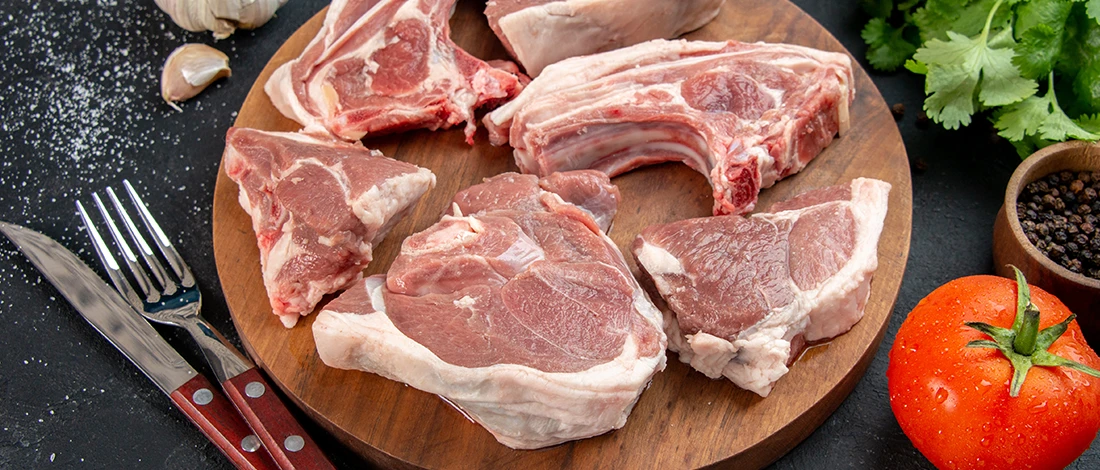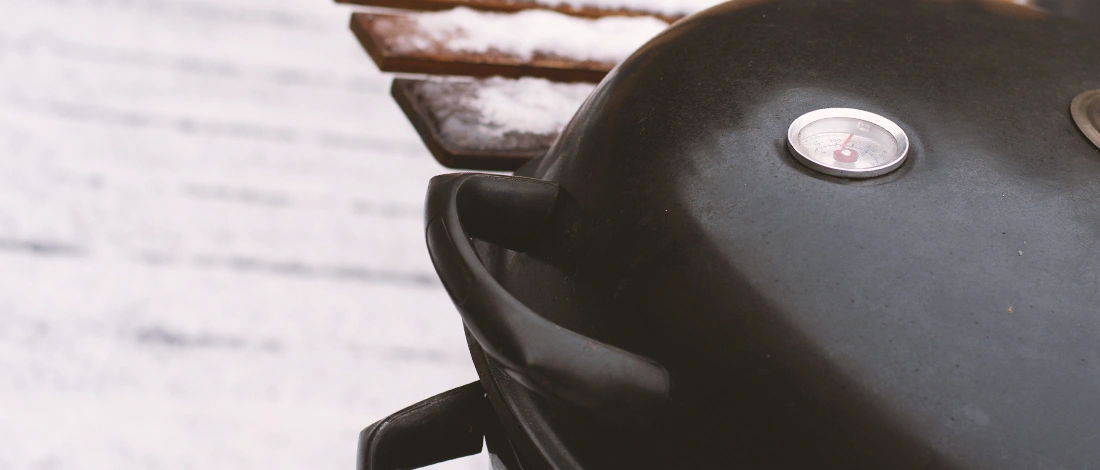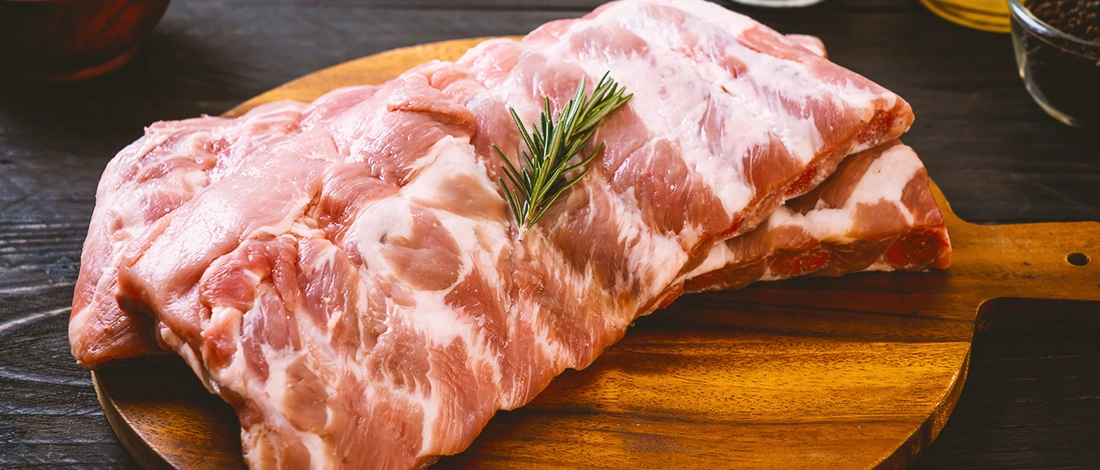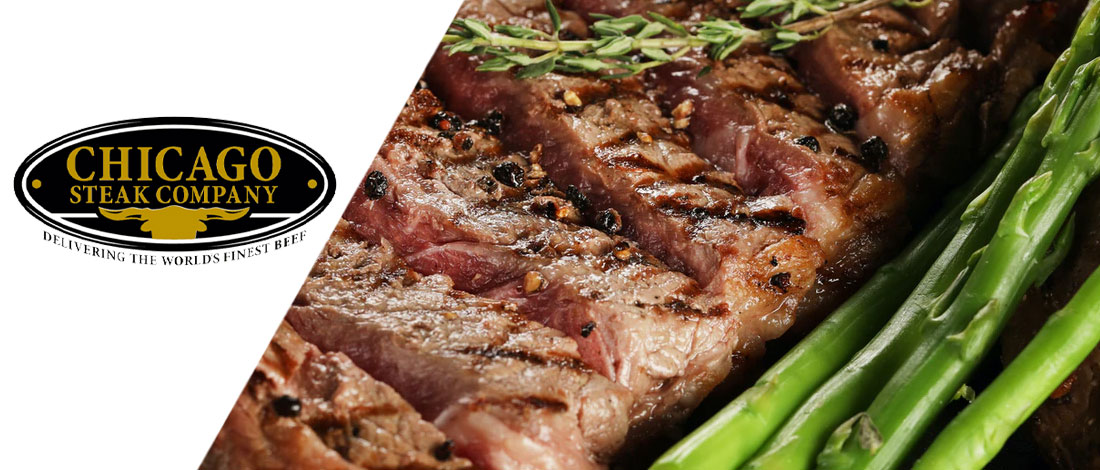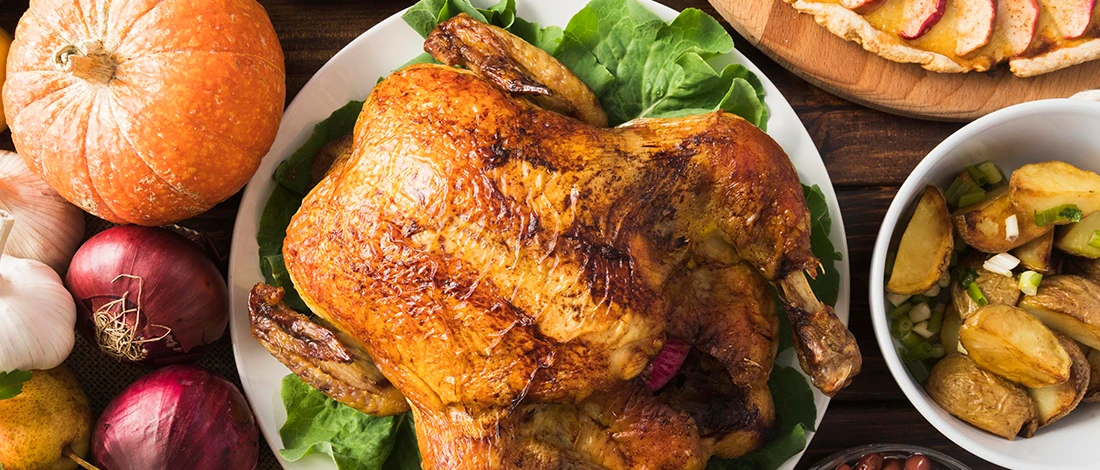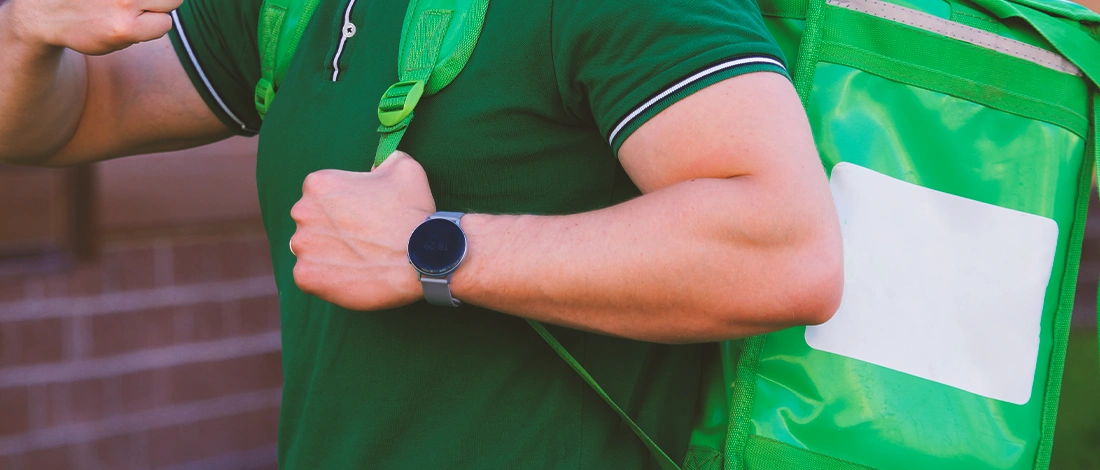To wash or not to wash your meat is an age-old question. As someone who has been on a carnivore diet for over seven years, I had to find out whether I should wash my meat or not.
I talked with a chef friend and checked what the USDA says.
Here’s everything you should know about the safety of washing raw meat.
Quick Summary
- Washing meat before cooking doesn’t promote food safety and can lead to contaminating other foods and surfaces with bacteria.
- You should be very careful when handling raw meat and take necessary precautions to avoid cross-contamination.
- You must know how to clean utensils and cooking surfaces to prevent cross-contaminating of food and ensure food safety.
Should You Wash Meat Before Cooking?
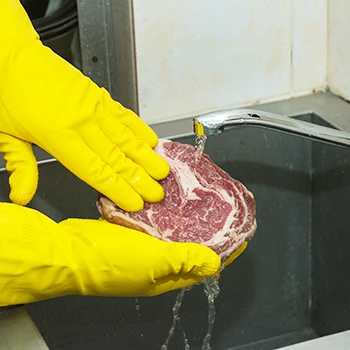
No, you shouldn’t wash meat before cooking, according to the USDA [1]. You shouldn’t wash any raw meat before you cook.
Washing meat doesn’t remove the bacteria; instead, it can contaminate the sink and other surfaces as water splashes during the washing.
Washing means rinsing chopped or whole cuts of raw meat under running water. The raw meats can be presoaked in an acidic solution and then rinsed before being seasoned with a rub or a marinade.
Washing meat is a cultural thing, and it’s important in developing countries, where markets sell recently slaughtered cuts. People rinse the meat to remove the blood and other contaminants. However, in the US, this isn’t necessary.
Rinsing and Cross-Contamination
Cross-contamination involves transferring bacteria from food to utensils, cutting boards, and other foods.
This can happen when food isn’t properly handled, especially raw meat. It can also happen with eggs, seafood, raw poultry, and other kinds of food. Keep the food juices away from cooked or ready-to-eat and fresh foods.
Contamination commonly happens from not washing hands well or not scrubbing long enough and packaging raw meat materials.
Packaging and other disposable materials, such as meat trays and egg cartons, must be thrown away immediately after removing the contents.
“Washing raw poultry, beef, pork, lamb or veal before cooking it is not recommended. Bacteria in raw meat and poultry juices can be spread to other foods, utensils, and surfaces. We call this cross-contamination.”
- The United States Department of Agriculture
Contamination and Its Health Consequences

Here’s how washing meat leads to contamination and how you ultimately get ill:
- Raw meat can contain bacteria like salmonella, listeria, and E. coli.
- Anything that raw meat touches, such as other food, kitchen tools, and surfaces, can become contaminated with this harmful bacteria.
- If you wash raw meat under the faucet, the water carries bacteria to the sink as well.
Proper food preparation, especially cooking at high temperatures, kills bad bacteria and makes it safe to eat.
However, the same isn’t true for your sink, utensils, counters, and cutting boards. In other words, any surface that comes into contact with meat that has bacteria can be contaminated.
One especially dangerous bacteria is campylobacter, which is the leading bacterial cause of gastroenteritis (an infectious kind of diarrhea) [2]. Gastroenteritis can lead to bloody diarrhea, fever, nausea, vomiting, and headaches.
Also Read: Can You Eat Raw Meat?
4 Ways to Prevent Cross-Contamination
You should clean first and sanitize second. Cleaning removes dirt and debris from your kitchen, but it doesn’t kill germs.
Bacteria can stay on surfaces for a long time. For example, campylobacter can live around four hours, and salmonella around 32 hours [3].
Start by washing countertops and sinks with hot, soapy water. Let them air dry, or use single-use paper towels to dry them. In case you use kitchen towels, make sure to wash them using the machine's hot cycle.
Once you’re done cleaning, it’s time to sanitize. Sanitizing can also kill germs but is most effective after cleaning. You can use commercial products, but make sure they are safe for food contact surfaces.
1. Clean Utensils
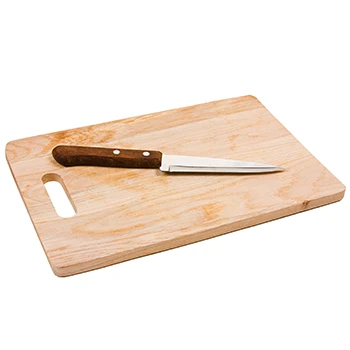
Use a sanitizing product that’s safe for food contact surfaces on cutting boards and utensils.
You can make it yourself by mixing a tablespoon of unscented liquid chlorine bleach with a gallon of water. Pour this solution on the cutting boards and soak the utensils for several minutes. Then rinse with water and let air dry.
Pro tip: You can place cutting boards and utensils in the dishwasher if they are made of non-porous materials, such as plastic and glass.
Also Read: How Often Should a Meat Slicer Be Cleaned?
2. Clean Countertops and Sinks
Use a disinfectant to clean countertops and sinks. Put on gloves to protect your hands before using a disinfectant. Pour or spray it on sinks and countertops and let sit for a minute.
Then wipe all surfaces clean with a paper towel and check they are dry before using them again.
3. Wash Hands
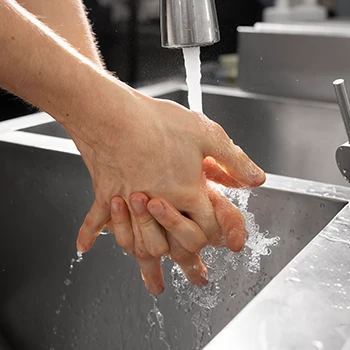
It’s important to wash hands after handling meat for food safety.
USDA says that in their observational studies, participants didn’t wash their hands up to 75% of the time and failed to follow recommended steps for hand washing up to 99% of the time [4].
The Centers for Disease Control and Prevention recommends washing hands for 20 seconds with soap and warm water [5].
4. Keep Food Separated
Another useful way to avoid cross-contamination is to separate raw meat from other foods.
Here’s how to do it:
- Keep raw meats away from other foods when shopping, storing food, and meal prepping.
- Use different cutting boards for raw and cooked food.
- Don’t place cooked food on an unwashed plate that previously held raw cuts.
Does Rinsing Affect Meat Quality?
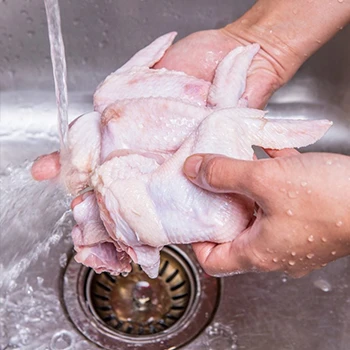
Yes, rinsing affects meat quality. Excess moisture on the meat prevents the Maillard reaction - a complex chemical process that happens when carbohydrate molecules react with amino acids, resulting in an attractive sear on the meat [6].
In other words, if you rinse, you risk too much moisture on your meat and no sear.
The Maillard reaction starts at around 285 degrees. Water turns to vapor at 212 degrees, and it doesn’t get hot enough for the Maillard reaction to happen.
Your meat won’t brown until the water is completely cooked off, and by that time, the meat is already well done.
Any bacteria on the meat will be killed off during cooking, and you won’t get food poisoning. Overall, you risk having mediocre meat quality and contamination of other meat and surfaces by rinsing.
Should You Soak Meat?

No, you shouldn’t soak meat if your goal is to kill bacteria. In terms of food safety, there’s no reason to soak food.
However, you can soak your food if this step is a part of the recipe. For example, this includes marinating the meat in lemon juice. If you do this, it’s best to keep food in the fridge until cooking time.
This ensures minimum cross-contamination when you remove the meat from the soak.
These are the best acidic solutions to use to soak meat, as they effectively kill bacteria:
- White vinegar - Has acetic acid, which reduces the bacteria in beef, duck, and chicken.
- Lemon or lime juice - Reduce the bacteria on meat and retain meat flavor.
- Food-grade sodium hydroxide (NaOH) - Prevents mold and bacteria from growing on the meat.
Some people on a sodium-restricted diet believe soaking meat is healthier. However, only little salt is removed by soaking.
Note: Some studies say that soaking meat in an acidic solution, such as vinegar or lemon juice, helps reduce bacteria on raw cuts, but it’s unknown if this kills food-borne viruses [7]. Cooking at a high temperature is still the safest way of killing bacteria.
Related Articles:
FAQs
Why does Meat Need to Be Washed Before Cooking?
Meat doesn’t need to be washed before cooking. According to the USDA, this isn’t necessary. Washing doesn’t remove bacteria, but it can spread bacteria to the sink, utensils, kitchen surfaces, and other food, and you can get food poisoning.
Do Chefs Wash Their Chicken?
No, chefs don’t wash their chicken. Washing meat or rinsing meat doesn’t promote food safety.
Should I Wash Meat Before Freezing It?
No, you shouldn’t wash meat before freezing it. Preparing meat by washing it can lead to cross-contaminating the meat and kitchen surfaces. Plus, when meat is defrosted, cooking kills bacteria anyway.
References:
- https://www.fsis.usda.gov/food-safety/safe-food-handling-and-preparation/
- https://www.who.int/news-room/fact-sheets/detail/campylobacter
- https://www.ncbi.nlm.nih.gov/pmc/articles/PMC5981902/
- https://www.fsis.usda.gov/food-safety/food-safety-stats/consumer-research
- https://www.cdc.gov/handwashing/faqs.html
- https://www.sciencedirect.com/journal/journal-of-food-protection
- https://www.sciencedirect.com/topics/agricultural-and-biological-sciences/maillard-reaction

